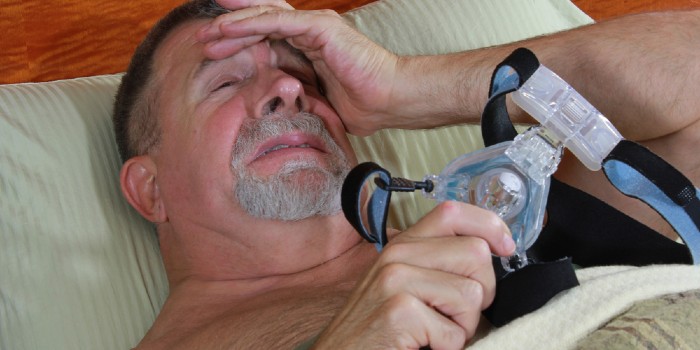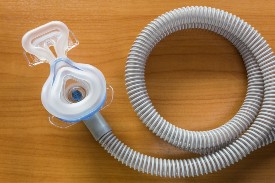
In June of this year, we heard about a voluntary recall made by Philips Respironics of potentially serious health risks related to several of its CPAP, BiPAP and ventilator devices caused by the machines’ sound abatement toxic foam.
START YOUR FREE CASE EVALUATION TODAY
The issue? The sound abatement foam in these devices could potentially degrade exposing users of the devices to toxic particles and chemicals which could then be ingested or inhaled as the device contains no filter to prevent this from happening.
The toxic chemicals these devices could release include:
The foam degradation may be exacerbated by the:

Example of CPAP mask and hose, an entryway for the toxic debris.
Inhaling or ingesting these particles could result in serious life-threatening injuries, cause permanent impairment, or require medical intervention.
Lawsuits are starting to be filed. Potential causes of action may include:
Use our online Case Evaluation Request form to request a free consultation and case review.
If you or a loved one developed cancer, respiratory issues, or other serious health problems after using one of these defective Philips CPAP machines, contact the law offices of Nash & Franciskato at (877) 284-6600. The time to request your free, no-obligation case review is today. We will help you determine if your Philips breathing device is the cause of your health issues. We will review your case in a free and confidential consultation, with no risk or obligation to take legal action.
Call us today at (877) 284-6600. One of our experienced staff will speak with you personally and will provide you with a free, no-obligation review of your case.
SCHEDULE A FREE REVIEW OF YOUR CASE
Would you like to receive news and blog updates on a regular basis? Sign up to receive our email newsletter. Your email address will only be used to send you our newsletter and respond to inquiries.
Past results afford no guarantee of future results and each case is different and is judged on its own merits. The choice of a lawyer is an important decision and should not be based solely upon advertisements.